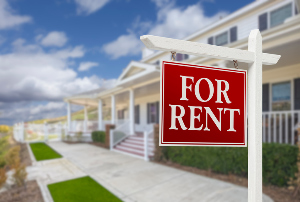Reigning in Wellington landlords
Wellington’s tight rental market has led to an array of suggestions on how to deal with bad landlord behaviour - but there are some things that landlords just can’t do.
Tuesday, June 13th 2017, 2:00PM
by Miriam Bell

Recent Trade Me Property rental data shows that it is the Capital which has experienced the biggest fall in rental stock over the past year.
Listings were down by 65% - while asking rents were up by 11% - in the year to April 2017.
Wellington’s rental squeeze has been attributed to landlords selling their rentals to cash up as well as fewer people buying rental properties due to higher purchase prices.
A further contributing factor is said to be that renters are renewing their tenancies rather than venturing back out into a competitive market.
The situation is leading to regular tales of tenant woe along with a wide range of suggested “solutions” to the problem.
In recent days, these suggestions have included the abolition of letting fees, the introduction of a warrant of fitness (WOF) for rental properties, and landlord accreditation systems
NZ Property Investors Federation executive officer Andrew King said he doesn’t believe that introducing rental property WOF’s or getting rid of letting fees would resolve the issue.
It is the lack of rental accommodation which is causing problems, he said.
“WOFs and no letting fees aren’t going to make the market any less tight. More rental properties are needed to reduce the pressure on the market.”
In King’s view, if these suggestions were adopted, they would be likely to deter people from becoming landlords which would impact on the supply stream.
“Good landlords do want to minimise the costs to tenants, but the costs involved with a rental property WOF system would be passed on in rents,” he added.
Over the last few years, the idea of introducing WOFs for rental properties has remained at the forefront of discussion on rental market problems.
The Labour Party, the Green Party and Gareth Morgan’s Opportunities Party all support some form of WOF or standards for rental properties, as do tenant groups.
Rental property WOFs might be popular but most people don’t understand how difficult it would be to implement such a system, Wellington Property Investors Association president Richard Bacon said.
“When there was a rental properties WOF trial the overhead assessments were horrendous and just about all of the properties assessed failed.
“So you would just be spending a lot of money from tax or rate payers or renters to get a negative view of rental properties.”
Instead the WPIA is looking into a landlord accreditation system for their members – although no decisions have been made on what form any such system would take, he said.
One option could be along the lines of the system used by the National Landlords Association in Britain where landlord accreditation is based on property inspections.
Another option could be a Conscious Consumers style “badge” system where, for example, landlords would get a “badge” if they could show their rental property is warm and dry.
Bacon said there needs to be more positivity about good landlords as opposed to the current focus on bad landlords.
However, there does seem to be some confused landlords out there who may be trying to do things they can’t do.
For example, letting fees can only be charged by property managers or agents. They cannot be charged by landlords letting their properties themselves.
King said that, in fact, two thirds of rental properties in New Zealand are managed by the owners themselves – although some of those owners might use an agent to let the property for them.
This means that the majority of rental properties on the market should not be subject to letting fees.
Another thing landlords can’t do when renting out properties is discriminate against potential tenants because of any of the grounds covered in the Human Rights Act.
This means a landlord cannot turn a tenant down due to their race, age, gender, sexual orientation, family status or disability.
The issue has come to light following reports that a Wellington agent refused to organise a property viewing for a heavily pregnant woman because the landlord didn’t want tenants with children.
Under the Human Rights Act, this is unlawful but this particular situation was confused by the fact the landlord lived in a house above the self-contained flat being rented.
There is an exemption in the Act for situations where a landlord will be sharing the rental accommodation if there is some kind of communal living arrangement.
But human rights lawyer Sylvia Bell said that the Act defines shared residential accommodation as a dwelling house, flat, motel, boarding house or camping ground.
While the definition is not rigid, Bell doesn’t think that a self-contained unit amounts to shared accommodation even if it is on the same property.
Read more:
Give tenants greater security – TOP
Rental WOF needed to address inequality - academic
| « APIA issues sub-let warning | Northern rents booming - but not for all » |
Special Offers
Comments from our readers
No comments yet
Sign In to add your comment
| Printable version | Email to a friend |


